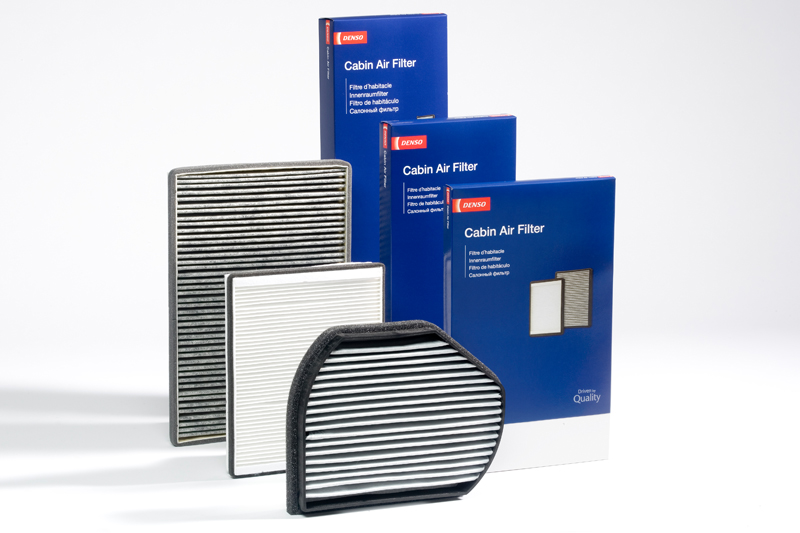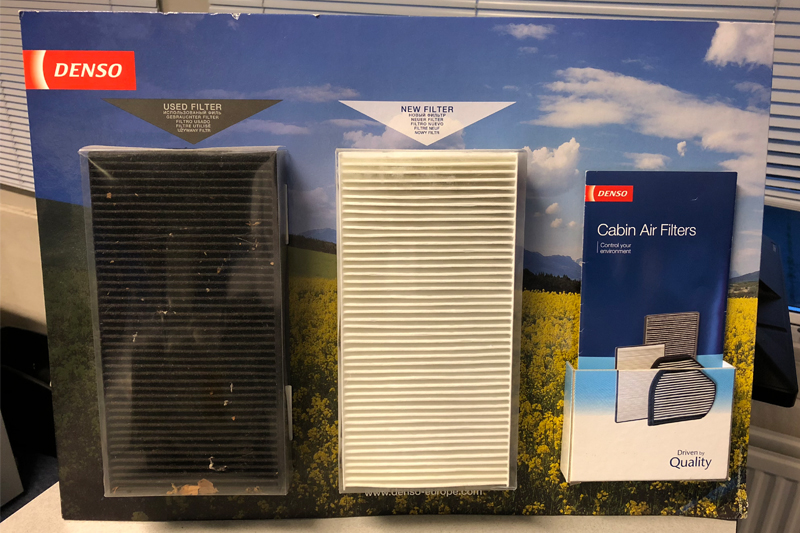
DENSO delves into the importance of high quality cabin air filters.
There are over 40 million people living in largest top 115 cities in the EU who are currently exposed to air which exceeds the World Health Organisation’s quality guideline values for at least one major pollutant. The health implications of this are severe; children living near roads with heavy-duty vehicle traffic are twice as likely to develop respiratory diseases and lung cancer. However, the risks aren’t just outdoors – motorists driving on busy roads may be at risk from breathing in air which is just as polluted as the air outside.
Unsung hero
 The cabin air filter (CAF) remains an unassuming and inexpensive component but it plays a very important role. It is a vital cog in a car’s ventilation system, serving as a filtration medium to the outside air intake. The CAF helps to improve air quality by filtering out harmful particles found in exhaust fumes, cigarette smoke and fuel vapours before they get inside a vehicle. Without a CAF, the air inside a car could be up to eight times dirtier than the outside – so its role is essential.
The cabin air filter (CAF) remains an unassuming and inexpensive component but it plays a very important role. It is a vital cog in a car’s ventilation system, serving as a filtration medium to the outside air intake. The CAF helps to improve air quality by filtering out harmful particles found in exhaust fumes, cigarette smoke and fuel vapours before they get inside a vehicle. Without a CAF, the air inside a car could be up to eight times dirtier than the outside – so its role is essential.
Cabin air filter technology
The technologies inside CAFs often differ, but the most comprehensive filters in preventing harmful pollutants and gasses from entering the cabin are combination (carbon) filters. DENSO’s combination filters use high-quality, non-woven fabric enhanced by an added layer of activated charcoal. The charcoal technology creates an effective ‘adsorption’ process that condenses gasses on the surface, eliminating unpleasant and harmful gases and odours.
“The combination filter works off precision; a human hair is in the range of 40-120 μm micron), yet a combination filter can block particles that are 1,000 times smaller than this.”
The combination filter works off precision; a human hair is in the range of 40-120 μm (micron), yet a combination filter can block particles that are 1,000 times smaller than this. In turn, they’ve been shown to remove up to 25% more major pollutants from the air than standard particle filters, which don’t contain the activated carbon media. Importantly, a CAF doesn’t just deal with the minute pollutants; it prevents leaves and debris from entering the air conditioning system.
Quality is also key to filter performance. Older CAFs which are dirty or clogged can reduce the air quality inside a vehicle, as dirt can cause filters to harbour mildew and bacteria, which can cause allergies and discomfort to vehicle passengers. A poorer quality CAF also poses the risk of compromising a vehicle’s HVAC system completely, potentially resulting in costly damage.
Mileage matters
Over a distance of 15,000km at a speed of 60km/h, a standard CAF must refresh the equivalent of an average sized house up to 300 times a year – that’s a lot of pollution to sift out. Unsurprisingly, the more air that passes through a CAF, the more likely it is to clog, so it’s key that workshops regularly check vehicle filters to ensure they are in good working condition. As dust and dirt builds up, a clogged CAF becomes a lot less efficient. Aside from
poorer filtration, a blocked filter can also make window defogging more difficult as particles will remain airborne for longer and there will be less air flow from fan outlets. DENSO recommends CAFs are replaced at least once a year, or after 10,000-15,000km – whichever comes first.









